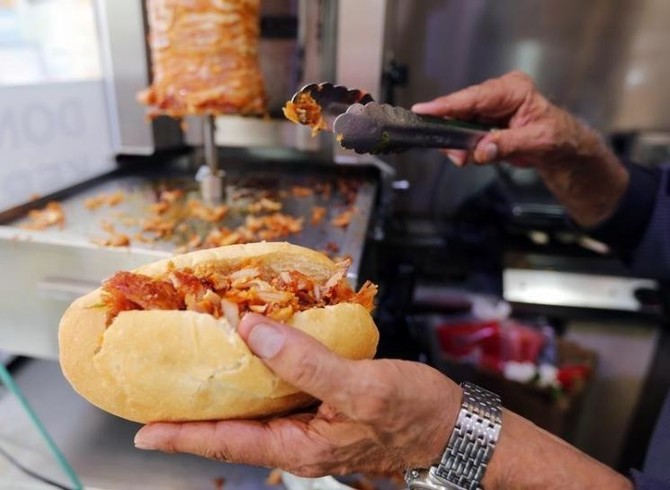LONDON: The kebab has come under scrutiny in the European Parliament, where MEP’s are worried about phosphates in the food that has grown to become a fast food staple across Europe.
Spanning cultural divides, kebabs enjoy widespread popularity in countries across the continent, where serving styles vary from the hearty kapsalon kebab favored in Holland to the classic döner kebab beloved of the British.
Now, they could become the latest foodstuff to fall prey to the EU’s comprehensive food regulations, which have been criticized in the past for laying down strict laws on factors such as the shape of fruit and vegetables and the serving of olive oil in communal table jugs by restaurants.
Turning its attention to kebabs, the Parliament’s Health Committee has raised objections to a proposal by the European Commission to allow the use of phosphates, including phosphoric acid, di and tri phosphates and polyphosphates, in kebab meat.
The move comes amid concerns raised in a 2012 scientific review over the possible link between phosphates when used as food additives and heart disease – but the evidence remains inconclusive.
EU rules normally prohibit the use of phosphate additives in meat preparation, where they are used to protect flavour and retain water, however there are exceptions.
Kebab eaters in Europe will now have to wait for the vote, due to take place during the Parliament’s Dec. 11 to 14 plenary session in Strasbourg, to find out whether their favorite kebab shops will be serving up sandwiches with the same juicy texture and flavor that keeps them coming back for more.














